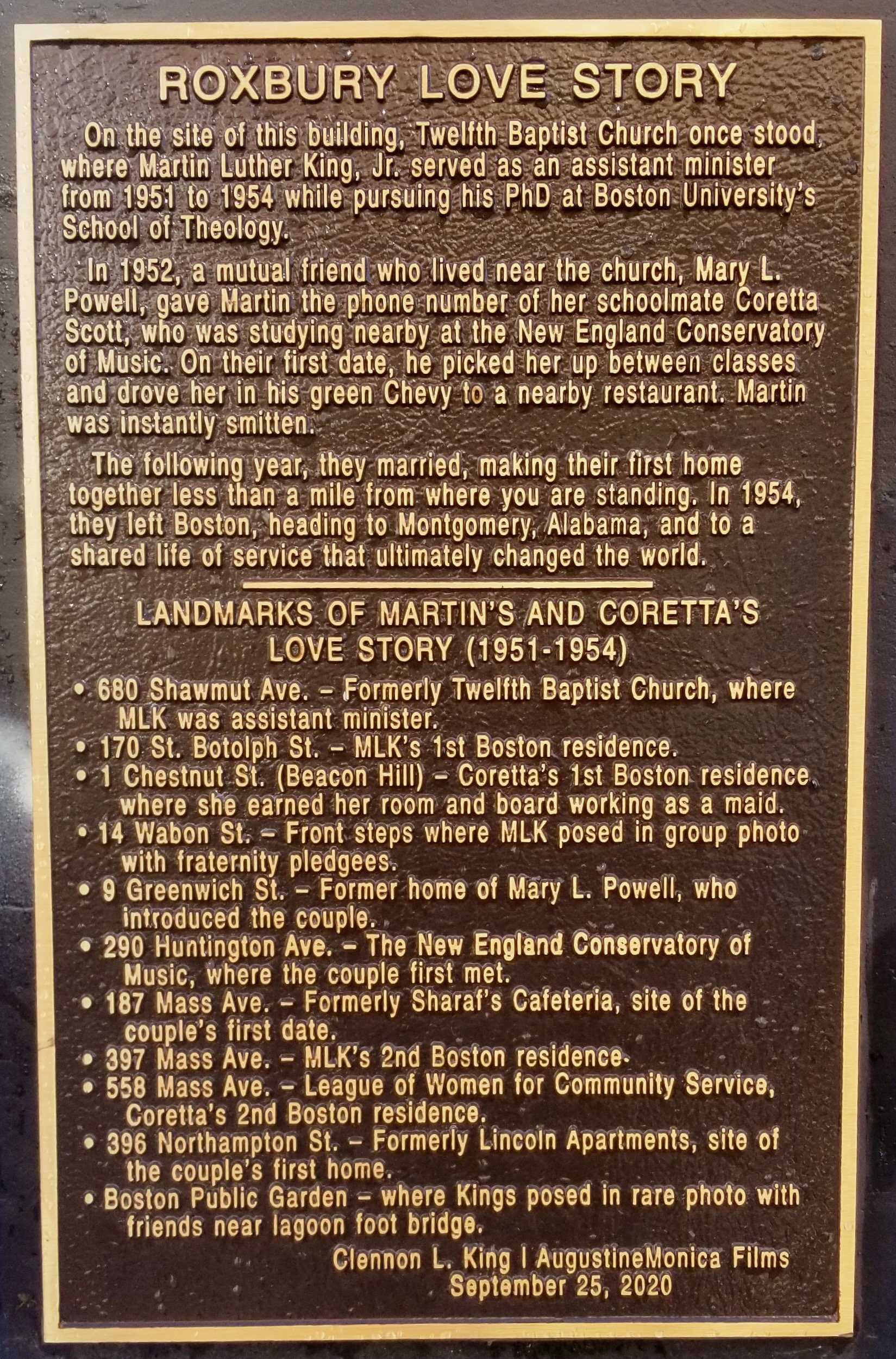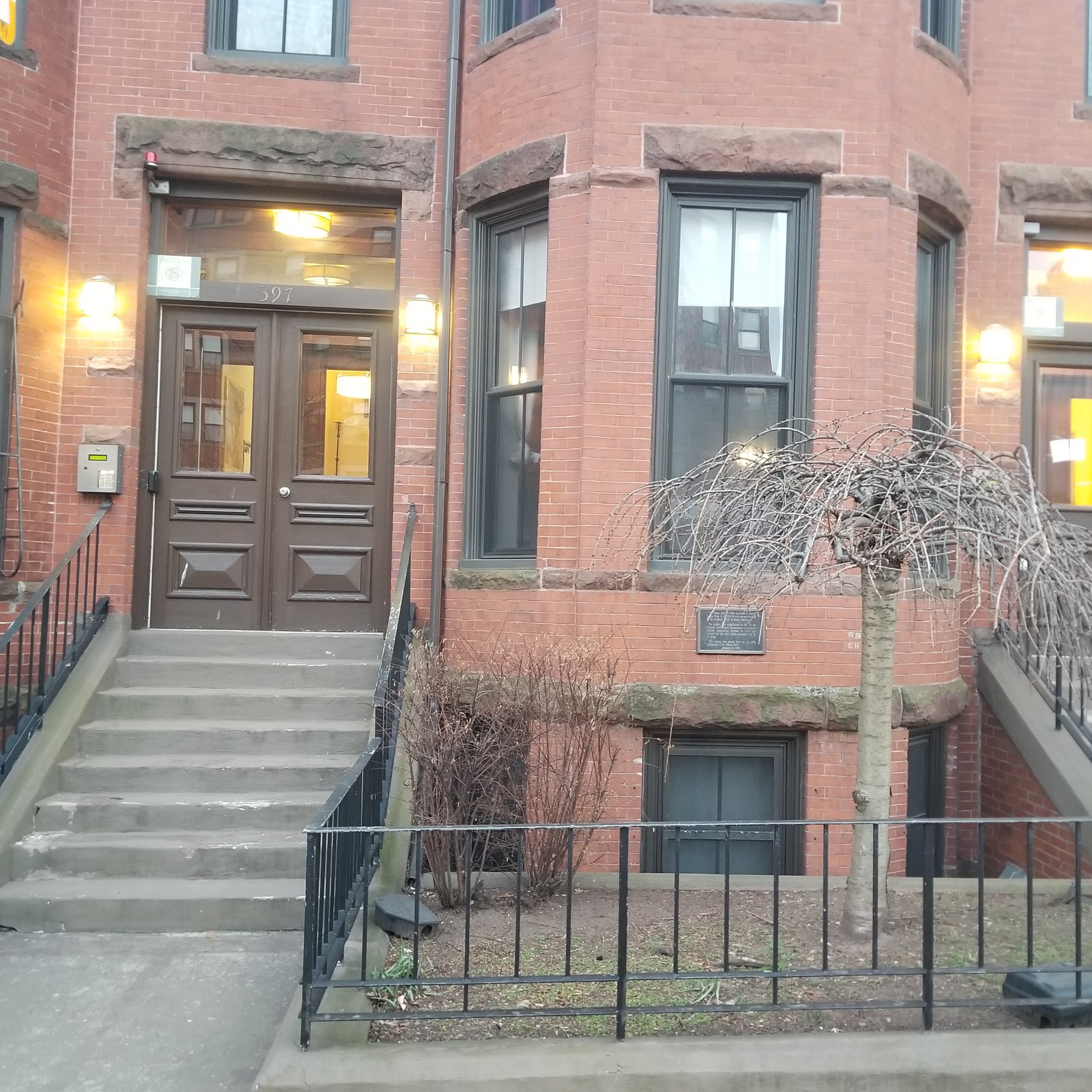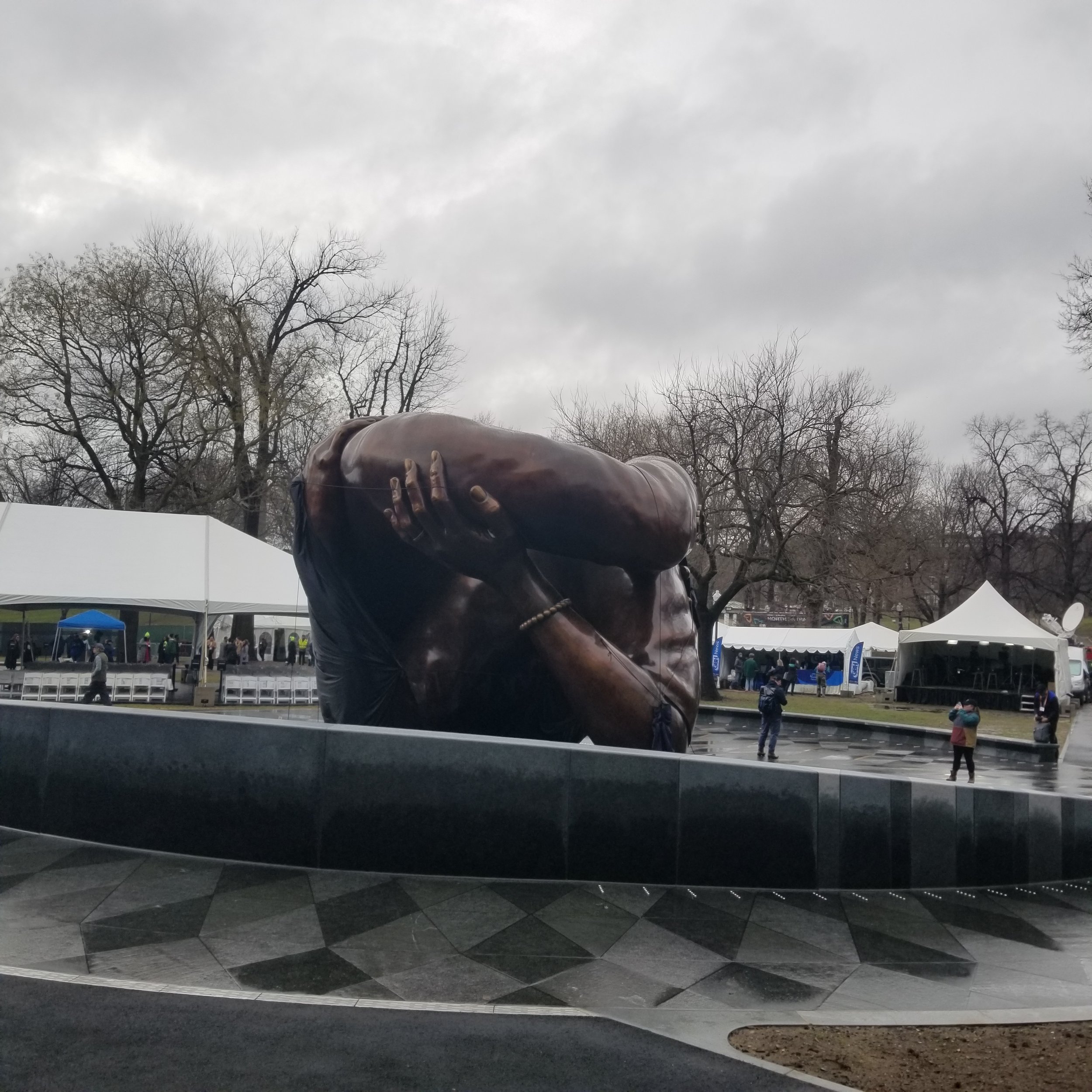MLK in Boston
MLK in Boston
There’s more to Dr. King’s time in The Hub than Boston University.
by Rudy Mitchell, Senior Research, Applied Research & Consulting
Dr. Martin Luther King Jr. is closely associated with half-a-dozen U.S. cities, mostly in the Southeast.
He was born in Atlanta and served as co-pastor at the Ebenezer Baptist Church with his father. He led a boycott of the bus system in Montgomery and led a campaign against racial segregation and economic injustice in Birmingham. He delivered his famous “I Have a Dream” speech during the March on Washington. He led a march from Selma to Montgomery where he gave his “How Long, Not Long” speech. And he was assassinated in Memphis while fighting for the Black sanitary public works employees.
But Boston has its own share of significant sites tied to the life of Dr. King. And it’s not just Boston University.
Here’s a list of some places in Boston where you can retrace the steps of Dr. King and his legacy.
Twelfth Baptist Church
Location: 160 Warren St., Roxbury
Dr. King often attended Twelfth Baptist Church where he sometimes served as a teacher. He often preached on Sunday evenings and sometimes Sunday mornings when Rev. William Hester was away. (Dr. King’s father knew Rev. Hester.)
At Twelfth Baptist, Dr. King became friends with Dr. Michael Haynes, the youth pastor at the time. Dr. Haynes later served as senior pastor and helped plan Dr. King’s 1965 visit to Boston.
Roxbury Love Story Mural and the former site of Twelfth Baptist Church. Emmanuel Gospel Center.
Up until 1957, Twelfth Baptist was located at the corner of Shawmut Avenue and Madison Street near where Melnea Cass Boulevard is today, marked by the MLK mural, “Roxbury Love Story” on the side of a new building.
Twelfth Baptist Church is currently located at 160 Warren St. in Roxbury. Emmanuel Gospel Center.
Massachusetts Avenue Residence
Location: 397 Massachusetts Ave.
397 Massachusetts Ave. Emmanuel Gospel Center.
Dr. King lived at 397 Massachusetts Ave. from 1952 to 1953 while studying at the Boston University School of Theology. He lived here during the time of his courtship with Coretta Scott who was attending the nearby New England Conservatory of Music and living at 558 Massachusetts Ave.
This building is near the MBTA Massachusetts Avenue Orange Line Station.
Emmanuel Gospel Center.
A plaque on the house reads:
“This house, built in 1884, was home to Martin Luther King, Jr. in 1952-53 while he was enrolled in the Graduate School of Boston University.
The building was rehabilitated in 1987 by the Tenants’ Development Corporation, a nonprofit housing organization founded in 1968 and inspired by the civil rights movement led by Dr. King.
This plaque was placed here on the 60th anniversary of Dr. King’s birth.
January 15, 1989.”
Coretta Scott lived at 558 Massachusetts Ave. before she married Dr. King. Emmanuel Gospel Center.
Northampton Street Residence
Location: 396 Northampton St.
Emmanuel Gospel Center.
Dr. King and his new wife, Coretta, lived in an apartment at 396 Northampton St. after they were married in 1953 and until she graduated from the New England Conservatory of Music in 1954.
The Northampton Street building no longer exists, but a plaque marks its location. The plaque is located near what is now the site of the new Carter School, which is currently under construction, between Columbus Avenue and the MBTA Massachusetts Avenue Orange Line Station.
It reads:
Emmanuel Gospel Center.
“Newlywed Home of Coretta Scott and Martin Luther King, Jr.
Martin Luther King, Jr. and Coretta Scott met in Boston and had their first date in January 1952. During their courtship, Martin moved to 397 Massachusetts Avenue, and Coretta moved to The League of Women for Community Service at 558 Massachusetts Avenue. They married in Heiberger, Alabama at Coretta’s family home on June 18, 1953. When they returned to Boston, they moved into Apartment 5 in the six-story Lincoln Apartments on this site at 396 Northampton street. Sharing this one-bedroom rental, Coretta graduated from New England Conservatory of Music, while Martin completed his Boston University residency and began writing his thesis. The Kings left Boston for Montgomery, Alabama in July 1954, where they began a shared life of service and advocacy. Coretta wrote, “I came to the realization that we had been thrust into the forefront of a movement to liberate oppressed people, and this movement had worldwide implications. I felt blessed to have been called to be a part of such a noble and historic cause.”
When they were first married, the Kings lived near what is now the site of the new Carter School, which is currently under construction. The 1965 Civil Rights March started at Carter Park. Emmanuel Gospel Center.
Metropolitan Baptist Church
Location: 393 Norfolk St., Dorchester
The former site of Metropolitan Baptist Church on Shawmut Avenue. Emmanuel Gospel Center.
In 1952, the pastor of Metropolitan Baptist Church, Rev. Minor, became ill and had to take some time off to recuperate. During his absence, Dr. King served as interim pastor while he was also a student at Boston University School of Theology.
At that time, the church was located at 777 Shawmut Ave. near the intersection of Ruggles Street and what is today Dewitt Drive. That church building no longer exists, but the congregation continues to meet in its Dorchester location.
Metropolitan Baptist Church. Emmanuel Gospel Center.
Boston University School of Theology
Location: 745 Commonwealth Ave.
In September 1951, Dr. King began his studies in theology and philosophy at Boston University under Professors Edgar S. Brightman and L. Harold DeWolf.
With the influence of Dean Walter Muelder and Professor Allen Knight Chalmers and others at the school, he developed his philosophy of nonviolent resistance and affirmed his ultimate faith in God.
He completed his residential studies in 1954 and received his Ph.D. degree in 1955.
“The Embrace” memorial to Martin Luther King Jr. and Coretta Scott King in the Boston Common. Emmanuel Gospel Center.
Boston Common and the Massachusetts State House
On April 23, 1965, Dr. King led a protest march from Carter Park to the Boston Common where he spoke against Boston’s school segregation to a crowd of 22,000.
He also spoke before a combined session of the Massachusetts Legislature at the State House on April 22.
He had previously returned to Boston in 1964 to support a parents’ boycott of the public schools, advocating school desegregation and improved quality of the schools.
Part of “The Embrace” memorial and the 1965 Freedom Plaza.


















